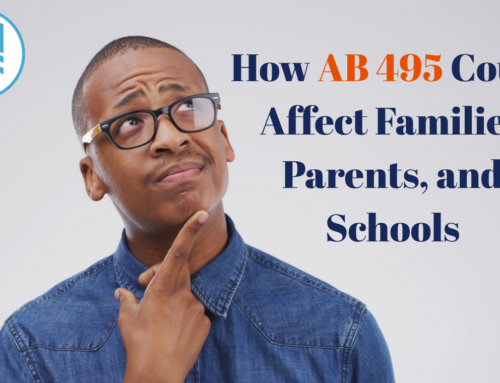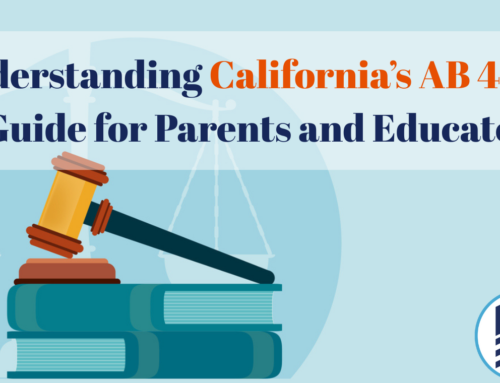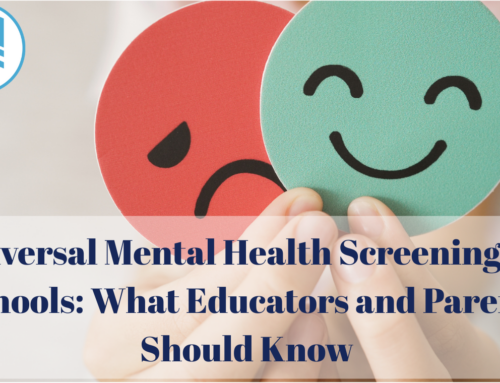
What is school choice (or educational choice) and why does it matter?
School choice is the freedom for parents to choose the best school option for their child. Location, values, available services, quality time, and more play into making an informed choice for your child’s education.
To further expand that definition, school choice means you have the responsibility to choose your child’s schooling from a variety of options: public schools, private schools, home education, and everything in between. It also means that education funding is not only available to public school students.
With school choice, tax dollars earmarked for education follow your child to the school option of your choice, such as homeschool or private school.
The various avenues of American education
Unfortunately, not every American family exercises their right to school choice. According to EdChoice.org, parents’ schooling preferences do not match up with actual enrollment.
Here’s how the preferences measure up:
- 36% of parents prefer public school.
- 40% of parents prefer private school.
- 13% of parents prefer charter school.
- 10% of parents prefer homeschooling.
With that in mind, here’s what actual enrollment looks like:
- 83% of parents send their child to public school.
- 5% of parents send their child to private school.
- 8% of parents send their child to charter school.
- 3% of parents homeschool their child.
To ensure that school choice is an option for lower-income families, many states have implemented educational choice programs that empower parents to make the best decisions for their children. Unfortunately, these programs are only found in 32 states. School choice programs allow the reallocation of public education funds for a student to attend an alternative or non-public school.
Why school choice matters
Gone are the days of simply defaulting to the public school assigned to your neighborhood. As we saw in the statistics above, families are finding more appeal in school choice. This can also be seen in a 2019 report published by the National Center for Educational Statistics (NCES.)
NCES wrote,
“Over time, the numbers of students enrolled in traditional public schools, public charter schools, and homeschool programs have increased. Enrollment in traditional public schools was 1 percent higher in fall 2016 (47.3 million) than in fall 2000 (46.6 million). Public charter schools grew at a much more rapid rate in that time, with enrollment increasing by more than 500 percent, from 0.4 million in fall 2000 to 3.0 million in fall 2016. Enrollment in homeschool programs has also grown, nearly doubling from 1999 (0.9 million) to 2016 (1.7 million). However, private school enrollment fell 4 percent between fall 1999 and fall 2015.”
As more and more families leverage the freedom of school choice, we hope to see it become a more viable option for students across the country.
Now that we’ve discussed what school choice means, let’s look at why it should matter to parents.
School choice inspires innovative teaching methods
Where school choice is at work, you’ll find a greater drive toward innovation in teaching and in how schools are run. This healthy pressure may inspire schools to clamp down on bullying and provide a more stable learning environment. Competition is good!
A report titled “Pursuing Innovation: How Can school choice Transform K-12 Education in the U.S?” provides some insight on the benefits of competition in education:
“It is impossible to observe directly the extent to which competition in education from charter schools and private school choice programs affects behavioral incentives because we can’t see intentions, only actions. We can consider, however, the extent to which competition is likely to affect the incentives of key actors in the education system based on the design features of charter and private school choice programs.
“Competition affects behavior most when it brings with it the threat of losing something that is desired by the affected person. Local public school districts value the students they serve and the resources that flow to the organization because of those students. Therefore, we can surmise, based on the work of Terry Moe, that competition from school choice in the form of charters, vouchers, tax-credit scholarships, and ESAs will most clearly and positively affect behavioral incentives when the choices are extensive; the options are of high quality; and most, if not all, dollars travel with the student. Organizational competition in education is likely to be feckless, on the other hand, when the choices being provided to families are limited, generally of low quality, and hold public schools financially harmless. We would expect that any positive competitive effects of charters and private school choice programs would be much clearer under conditions that induce more intense educational competition than under conditions that induce more limited competition.”
As a result of school choice, you’ll find motivated and inspired individuals at work creating learning facilities that will stand in the gap for specific needs. This is great news for parents who believe their child would benefit from something different from what is currently offered at their assigned public school.
School choice caters to your child’s academic needs
In school choice, you find an opportunity to help improve your child’s academic situation.
Whether you have a child with a learning difficulty or you have an advanced child in need of more challenging work, a typical neighborhood public school is not designed to cater to unique needs. Thanks to school choice, you can help your child succeed by providing a learning environment that helps them thrive.
Not sure what options are available? A little internet research can quickly show you your options and give you a place to start.
School choice prioritizes your child’s behavioral and emotional development
School choice assumes that you know better for your child than a cookie-cutter system does.
Rather than being locked into the neighborhood school system, parents can find alternative educational approaches for their child’s behavioral and developmental needs.
Please note—we’re not suggesting neighborhood schools are bad. Your local public school may be the perfect educational facility for your child. If so, that’s wonderful!
But if traditional public school is just not meeting your child’s needs or isn’t in line with your family’s values, school choice matters.
One proponent of school choice, Chris Stewart, observes that government-supported school choice is a “global norm” in advanced nations. There is certainly much work to be done to get the United States caught up with this international standard.
Continuing on the topic of school choice, Stewart notes, “What good is an education system that prioritizes its welfare over the welfare of the vulnerable populations it supposes itself to serve?”
He clarifies that school choice isn’t about saying that any school is good or bad—but rather “as good or bad for a specific child.”
Freedom of school choice empowers families.
Take charge of your child’s education
As a parent, you are your child’s primary caregiver. Like no other person out there, you have the biggest interest in the well-being of your child. You love them, and you know them. Who else is more worthy of making decisions to help them grow?
We hope that an understanding of school choice and why it matters inspires you to take ownership of your child’s education.
To learn more about school choice, read how legislation drives school choice.





[…] this monopoly, some reforms must take place—starting with some new laws that will encourage school choice and use tax dollars fairly and […]
[…] and more states are beginning to offer school choice programs, which often include tax-funded charter school, private school, and homeschool […]
[…] Is School Choice That Big of a Deal? […]
[…] The responsibility to educate kids in matters of faith starts with parents, who exercise school choice to partner with a school they trust to reinforce (or, at the very least, hopefully not undermine) […]
[…] to a local microschool. However, as they also note, there might be financial aid available through school choice funding for some families wanting to explore the microschooling […]
[…] choice is a hot topic today, and for good reason. Choosing a good school for your kids is extremely important, especially since education has declined so much in recent years, both morally and academically. […]
[…] main categories were assessed to determine states’ rankings, which were school choice, transparency (how much schools keep parents informed about what’s going on and what kids learn), […]
[…] thing you should research are school choice vouchers. Several states have been creating opportunities for school choice that can actually aid […]
[…] own unique way. It’s merely our job to offer them the best opportunities and tools to do that. School choice helps make your job easier by opening the doors of possibility wide to your little […]
[…] While public schools are the second most popular choice for a single schooling option, parents are acutely aware of the other options available. […]
[…] thing you should research are school choice vouchers. Several states have been creating opportunities for school choice that can actually aid […]
[…] main categories were assessed to determine states’ rankings, which were school choice, transparency (how much schools keep parents informed about what’s going on and what kids learn), […]
[…] choice is a hot topic today, and for good reason. Choosing a good school for your kids is extremely important, especially since education has declined so much in recent years, both morally and academically. […]
[…] to a local microschool. However, as they also note, there might be financial aid available through school choice funding for some families wanting to explore the microschooling […]
[…] Is School Choice That Big of a Deal? […]